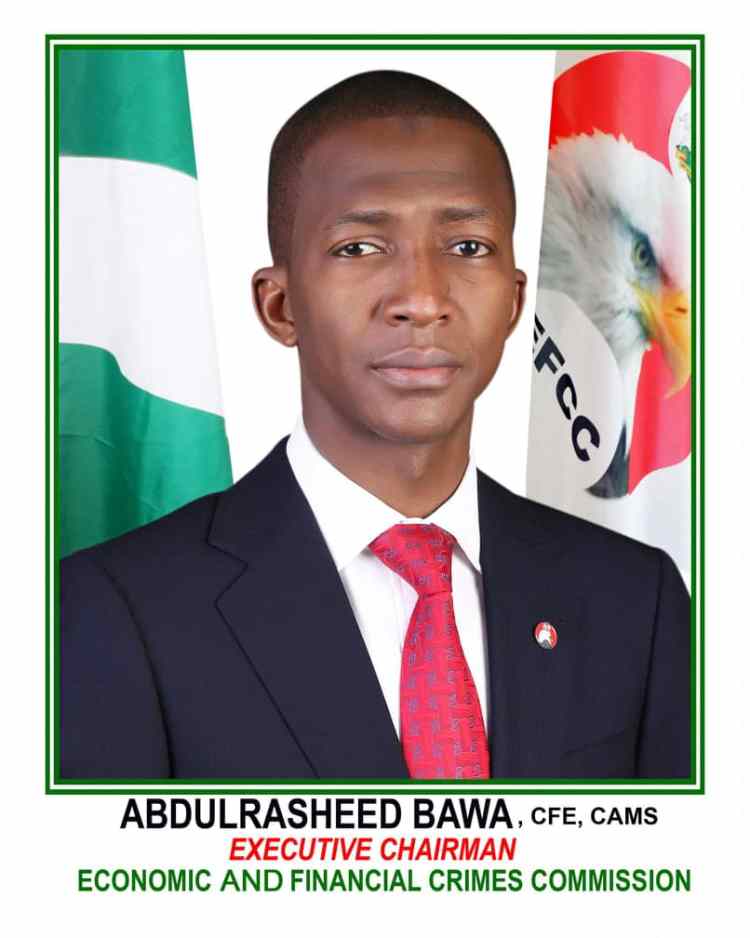Nigeria is losing about $I billion revenue annually to falsification of gas flare data by Multinational Oil Companies (MOCs) operating in the country, the Chairman, Economic and Financial Crimes Commission (EFCC) Rasheed Bawa said yesterday in Lagos.
In his contribution at a “One-day workshop on Illicit Financial Flow, Gas Flaring and COP 26” organized by Human and Environmental Development Agenda (HEDA) Resource Centre, re:Common and Cornerhouse in collaboration with Fossil Fuel Non-Proliferation Treaty Initiative , with support by MacArthur Foundation, the EFCC Chairman, represented by the Lagos Zonal Coordinator, Ahmed Ghali said the big oil companies falsified gas flare data in order to cut down on payment of penalties.
“Multinational Oil Companies (MOCs) operating in Nigeria has over the years been falsifying gas flare data to cut down on payment of penalties. The former Petroleum Minister, Dr lbe Kachukwu put the loss from this illicit flow to between $500,000,000 and $1,000,000,000 in revenues that would have accrued from the penalties.
“This is as a result of not having an independent tracking mechanism to monitor gas flare data and reliance on the figures submitted by International Oil Companies (lOC),” he said.
Nigeria, via the Associated Gas Reinjection Act 1979, introduced measures to control and eventually end gas flaring. Section 3(1) prohibits the flaring of Associated Gas “without the permission in writing of the Minister of Petroleum.
“Section 3(2) authorizes the minister to issue a flaring certification “utilization or re-injection of the produced gas it is not appropriate or feasible in a particular field or fields.
Bawa said the Petroleum Profit Tax, Nigeria Liquefied Natural Gas (Fiscal Incentive Guarantees and Assurance) Act, Associated Gas Re-injection Act, Private sector led initiatives like the West African Gas Pipeline (WAGP) project and the Domestic Gas Supply Obligations (DGSOs) are some of the laudable initiatives towards a clean energy transition in Nigeria.
Though the initiative was a success, he lamented that Nigeria has not made as much progress as was envisaged due to inability to effectively put an end to gas flaring and prevent illicit financial flows resulting from fraudulent declaration by the operators in the oil and Gas industry.
Prof of Sociology, University of Johannesburg, South Africa, Patrick Bond said illicit financial flow was a result of week and corrupt governments.
Prof Bond described illicit financial flow as an albatross to any economy adding that wherever it happens, it always come back to destroy ordinary people on the streets.
The university don who spoke on the topic “How IFFs relate to African Climate Finance” said: “South Africa was flagged for weak dirty money control reasons. Just like Nigeria, we have weak and corrupt governments.”
Deputy Vice Chancellor, Development Services, University of Lagos (UNILAG), Akoka, Prof Ayodele Atsenuwa, who was chairman of the event, in his opening remarks, said gas flaring has refused to stop in the country because it is part of the grand scheme of corruption and illegality in high places and the failure to bring those who gained from it to justice.
On illicit financial flow, Prof Atsenuwa remarked that the cankerworm is easy to trace when it is within a country’s territory, “but when it cross borders, you are entangled in international framework and this affects the issue of justice when the matter becomes complex.”
She urged chief security officers (CSOs), HEDA and other civil societies to come together to put pressure on those who are in power to change the situation.



